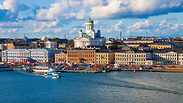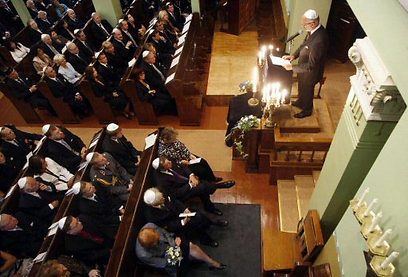
Shalom, Finland: Jewish culture guide
There are an estimated 1,500 Jews living in Finland today – 1,200 in capital Helsinki, about 200 in Turku and estimated 50 in Tampere
In 1809, having been conquered by the Russia during the Finnish War (1808 to 1809), Finland became an autonomous Grand Duchy in the Russian Empire. Despite the shift in power, Swedish laws remained, and Jews were still not permitted to settle in the region.
The only exception were Russian Jews who served in the Imperial Army since childhood (also known as cantonists). After their term of service ended, cantonists were permitted to remain in Finland regardless of the ban on Jewish settlement.
It wasn’t until December 1917, when Finland gained its independence from Soviet Russia, that Jews were emancipated. By January 1918, the government decreed an Act involving “Mosaic Confessors”, which granted all Jews equal rights under the law and Finnish citizenship.
Over the next 20 years, there was an influx of Jewish immigration to Finland, mainly from Russia. During this time, the Jewish population increased to approximately 2,000. During the Winter War of 1939 to 1940, 204 Finnish Jews fought in defense of their country from the invading Russian Army, of which 27 were killed.

As a result of national anger from the Russian invasion of Finland, the country again took part in the Continuation War (1941-1944), being cobelligerent with Germany. However, despite pressure from the Nazis, the Finns refused to endanger their Jewish citizenry under any circumstance. Consequently, Finnish Jews enjoyed total civil rights throughout the duration of World War II.
After the war, nearly three dozen Finnish Jews participated in the Arab-Israeli War of 1948. After the creation of the State of Israel, there was a high rate of aliyah among Finnish Jews.
There are an estimated 1,500 Jews resided in Finland today – 1,200 living in the capital Helsinki, about 200 in Turku and an estimated 50 in Tampere. Jews in Finland are well integrated into society, holding positions in numerous industries.
There are two synagogues in the country, one in Helsinki and the other in Turku, built in 1906 and 1912, respectively. The community as a whole is represented by the umbrella organization known as The Jewish Community of Helsinki. Chabad Lubavitch is located in Helsinki, offering a variety of services, courses, and events.
There is a Jewish day school located in the capital as well. A kosher store is located beside the Orthodox synagogue in Helsinki. If one is inclined, Jewish Finland offers four-hour heritage tours with adept guide Andre Zweig.
Although relatively small, the Jewish community in Finland is both fiercely proud of its heritage and homeland. Finland is definitely worth a visit, and you shan’t be disappointed.
Reprinted with permission from Shalom Life










